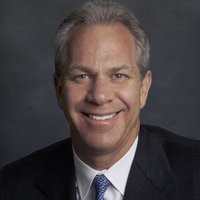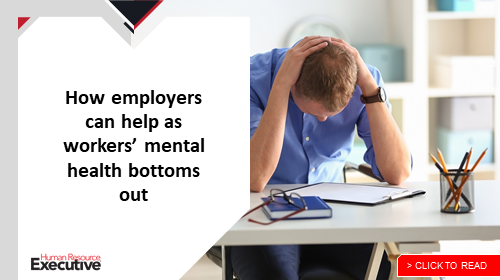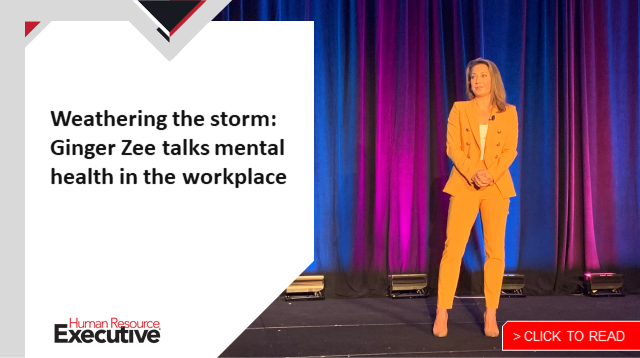When Richard Chaifetz practiced neuropsychology in hospital groups and outpatient centers years ago, everything about mental health was “hush-hush,” he says. “You understood you might have a problem, but you didn’t talk about it.”
And when he founded employee assistance program provider ComPsych in 1984—now the world’s largest provider of EAPs, servicing more than 60,000 organizations and 130 million individuals throughout the U.S. and 190 countries—even the name of the company, he says, turned people off. “People urged me to change the name,” he says.
That’s all shifted over the years.
“It’s a 360-degree change,” Chaifetz says. “It has gotten to a point now where it’s totally in the open. Michael Phelps and people like that just very comfortably talk about mental health issues and their mental health problems. And it’s almost become a badge of honor to be able to just admit it and talk about it. People get accolades for doing it. We’ve come a long way.”
HRE spoke to Chaifetz about the evolution of employers’ efforts in mental health, what smart organizations are doing to help and where they are falling short.
HRE: With mental health being more accepted, what are you seeing change in terms of how employers are approaching it? Because that’s part of the shift—how employers are getting more open and involved.

Chaifetz: Employers were always involved but in a different way. The vast majority of Fortune 500 companies had employed an EAP, or similar type program, more than 10 years ago. And it migrated down to middle-size and smaller companies 10-15 years ago. And obviously, now it’s across the board of all sizes, shapes, organizations, municipalities, etc. But employers, I think, have come to realize the devastating toll that mental health issues have on their employees that affects their ability to function well at work.
Related: Number of the day: Talking mental health with HR leaders
Mental health problems typically impact you immediately. And they impact your ability to do your job, to get along with your family, and everything kind of crumbles down. We’ve come to realize that there are levels of severity of mental health problems, and you don’t have to just have psychosis or severe depression to be inhibited or impaired by mental health problems.
HRE: Is this growing awareness a good thing?
 Chaifetz: What we’ve come to see is, and there’s a trend here that I think may change a little bit too, with the advent of the acceptance of mental health, we’ve kind of dumbed down a little bit what mental health is all about. You have programs out that have unlicensed people doing “coaching,” and people engaging in quasi-therapy or support. And what we’re failing to see is that what may mask itself as “not so severe” can exacerbate to something pretty problematic. Or what may not look like it’s problematic really is.
Chaifetz: What we’ve come to see is, and there’s a trend here that I think may change a little bit too, with the advent of the acceptance of mental health, we’ve kind of dumbed down a little bit what mental health is all about. You have programs out that have unlicensed people doing “coaching,” and people engaging in quasi-therapy or support. And what we’re failing to see is that what may mask itself as “not so severe” can exacerbate to something pretty problematic. Or what may not look like it’s problematic really is.
We’ve got to be careful. The importance of having licensed professionals making the assessments of problems and issues and treatment is coming back. God forbid we start seeing more severe cases and outcomes that aren’t treated right. In a rush to help everyone, we have overreached a little bit with the kind of people who are doing that service and providing that care.
HRE: Broadly speaking, what are the best organizations, the smartest employers, doing about mental health right now?
Chaifetz: They’re embracing it as one of the most important things they need to offer as solutions to their employees. It’s on the forefront; they’re being creative about how they offer it. They’re making sure they get true mental health services, not watered-down, app-only, or partial kinds of solutions. As I said, we can’t dumb down the severity of what this is all about. These are serious problems. And for the most part, they get worse.
Employers know that; they embrace it, and they promote it in ways that they didn’t before. I think in the past, it used to be, “Let’s check the box. We have this benefit. But we’re not going to really push it much.”
I think employers are behind it; they’re communicating about it more. [Employees] want an organization as a partner that talks about [mental health] and communicates the benefits much more readily.
And [smart employers think about the] importance of all the ancillary things around mental health—what I call work-life services: the care, the childcare, legal, health, financial health—all the things that exacerbate problems.
HRE: Are employers doing enough? And what can they do better?
 Chaifetz: I think employers have come a long way. But it’s never enough. Not all employers are doing the same. There are some companies we work with that are leading the pack in terms of having full and comprehensive resources available for their employees, promoting them, regularly encouraging their use, providing other services around what would be more traditional mental health problems, because they understand the interconnection between mental health and wellbeing in general.
Chaifetz: I think employers have come a long way. But it’s never enough. Not all employers are doing the same. There are some companies we work with that are leading the pack in terms of having full and comprehensive resources available for their employees, promoting them, regularly encouraging their use, providing other services around what would be more traditional mental health problems, because they understand the interconnection between mental health and wellbeing in general.
Not everybody embraces the way I’m saying it, but I think there’s been a clear rise of the tide that’s lifted most folks today and the importance of this. In the HR space, people look to others, many times to see what people are doing, and then jump on the bandwagon.
The post ComPsych CEO on employers’ mental health efforts: ‘It’s never enough’ appeared first on HR Executive.